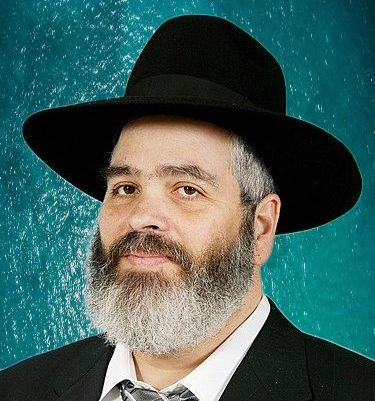
There does exist a peace agreement between Israel and Egypt, albeit a 'cold peace,' but an agreement nonetheless. Egypt has taken upon itself to mediate between Israel and Hamas and the meetings thereof take place in Cairo. But as the days go by, it becomes increasingly apparent that the one most responsible for the war in Gaza is none other than Egypt.
It will be remembered that 19 years ago, Israel evacuated the entire Gaza Strip, destroyed the flourishing Israeli settlements there and transferred everything over to the Palestinian Authority. Within a very short time, Hamas seized control over the entire Gaza Strip and began planning its war against Israel. But a war requires weaponry, lots of it. Huge, almost incredible quantities of arms were discovered there during the ten months of war, and that is not the end of it.
Where did Hamas obtain such mega-amounts of arms? How did it succeed in supplying and delivering it to the Strip which enabled Hamas to establish a flourishing industry of arms production? After all, Gaza does not have a harbor on the sea or even an airport.
The answer is apparent and obvious: the Egyptian border served as the main artery of transportation, free-for-all transshipment for arms of all kinds and raw material for their production. The site known as the Philadelfi Corridor served for all of this smuggling, but in order that this remain hidden from the Israelis, the smuggling took place underground via a elaborate system of tunnels built over the years.
A tunnel was discovered just this week, wide and high, enabling smooth and free passage to all vehicles. There is no way for the Egyptians not to have been aware of this major project. The Egyptian army guarding the border there were most certainly aware of the huge tunnel project maintained by Hamas and of the massive amounts of weaponry making their way into Gaza thereby. They willingly allowed it, cognizant that the arms would be used against Israel. They didn't even attempt to hide this and pretend to be innocently unaware of it.
Someone apparently struck it rich from this enormous transfer of arms while looking the other way, hoping that Hamas would succeed in accomplishing what Egypt was prevented from doing. The height of chutzpah was when the Egyptians attempted to thwart the capture of the Philadelfi Corridor, while the Israeli army held itself back from entering Egyptian territory to put a stop to this major smuggling.
Israeli is keeping its mouth shut, not blaming, doing its utmost not to provoke the Egyptians, but all fully know that if this corridor is cleared, as Hamas insists, it won't be long before it resumes full operation as before, replenishing it with stores of armory as before.
Hope from Weeping
We find ourselves in the midst of the period of mourning over the Bais Hamikdash. According to many sources, the Iranian leadership is well aware that these are difficult times for Jewry and is planning its attack precisely at this time.
Yirmiyahu prophesied this in Megillas Eichah, saying, "My soul has them still in remembrance and is bowed down within me. This I recall in my mind and therefore I have hope," Meshech Chochmah comments: "It is futile to mourn over something lost." Like crying over spilt milk.
A wise person rallies quickly and stops weeping when it is apparent that all is hopeless. But if there is still a chance, a hope, one does not despair and there is reason to cry. This, too, is what Dovid Hamelech said to his servants after his infant son died. They were surprised, since so long as the son was still alive, he fasted and mourned, but after he died, he stopped mourning. "So long as the child was still alive, I fasted and wept, for who knows if Hashem would have mercy upon me and the child would live. But now that he died, why should I fast? Can I still restore him? I am going towards him but he will not return to me" (Shmuel II 22-23).
For this very reason, weeping over the Destruction of Yerushalayim and the Mikdash proves that we have not lost hope and still pine for its restoration. But if this is the case, the destruction is the reason for our weeping, while Chazal said (Taanis 30:), "Whoever mourns over Yerushalayim will merit to see its comforting."
So we see that the very weeping is the reason behind the consolation of Zion, as is written in Midrash Eichah, "R' Eibo said: HaKodosh Boruch Hu said: As reward for that very weeping, I will bring back your exiles." This is what the novi said: ""My soul has them still in remembrance" - I bear the Churban in mind and because I still maintain hope for its rebuilding , "therefore I have hope." And now, "I recall in my mind and therefore I have hope."
Because of my weeping, I have hope that this will be rewarded that the Bais Hamikdash will be rebuilt, speedily in our days.




